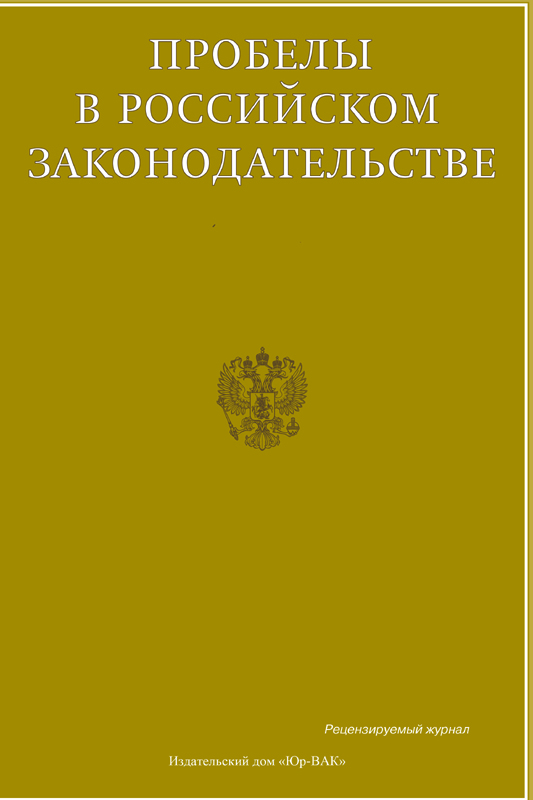Cyberspace as a Resource Base for the Spread of Terrorism
- Authors: Kanokova L.Y.1
-
Affiliations:
- Krasnodar University of the Ministry of the Interior of Russia
- Issue: Vol 16, No 4 (2023)
- Pages: 223-227
- Section: General theoretical, criminal-legal and other problems of Countering extremism and terrorism. Problems of preventing extremism and terrorism
- URL: https://journals.eco-vector.com/2072-3164/article/view/568449
- EDN: https://elibrary.ru/RCHVNQ
- ID: 568449
Cite item
Abstract
The purpose of this study was to study issues related to the spread of terrorism in cyberspace, which is more harmful than a physical terrorist act. As a result, the problem of cyberspace security has been actualized. So, in order to make cyberspace safe, it is necessary for the state not only to have appropriate legislation, but also to organize the introduction of appropriate practices in various spheres of life, for example, economic, socio-cultural, administrative-political, etc. Electronic management exists in all spheres, it facilitates and accelerates many operations.
The objectives of the study are to analyze the additional danger to the state, in particular, since terrorists can remotely influence certain targets and cause significant harm, including physical harm. It has been established that cyberterrorists can create conditions under which huge casualties on the part of civilians are possible, destroy infrastructure facilities, escalate tension and fear within society. In addition, the victimization of young people, which is also the reason for their involvement in terrorist activities, has become widely discussed in scientific circles. This problem requires a comprehensive solution, only then will it be possible to achieve a positive result. To do this, it will be necessary to significantly improve Russian legislation and make appropriate changes. It is important to develop the computer literacy of young people, to raise their socio-cultural level, as well as to develop a firm patriotic position among the younger generation.
It is concluded that the Internet helps terrorists to develop unnoticed by government agencies. If earlier terrorists had to use radio, television and print media to spread information, now the methods of information dissemination have changed and become much easier. Through the Internet, you can search for associates, recruit, distribute any materials, not only text, but also photos and videos, carry out terrorist attacks and much more. Cyberspace opens up vast opportunities for criminals who are able to master it.
Full Text
About the authors
Lyana Y. Kanokova
Krasnodar University of the Ministry of the Interior of Russia
Author for correspondence.
Email: kanokova91@mail.ru
Police Major, Lecturer of the department of special technical training, North Caucasian Institute for Advanced Studies (branch)
Russian Federation, Nalchik, KBRReferences
- Aripshev A.M. Countering the use of the Internet for terrorist purposes // Gaps in Russian legislation. 2021. Vol. 14. No. 5. pp. 272-275.
- Verenich I.G. Counteraction to terrorism in the information space // State and municipal Administration. Scientific notes. 2023. No. 1. pp. 293-296.
- Daurov A.I. Information terrorism as a real threat to the national security of Russia // Journal of Applied Research. 2023. No. 4. pp. 129-133.
- Efremova I.A., Smushkin A.B., Donchenko A.G., Matushkin P.A. Cyberspace as a new crime environment // Bulletin of Tomsk State University. 2021. No. 472. pp. 248-256.
- Ledovskaya M.A., Vladimirkina G.Yu. The use of the Internet by terrorist and extremist organizations // In the collection: Information and telecommunication technologies in countering extremism and terrorism. Materials of the All-Russian Scientific and practical Conference. Editorial board: A.V. Eskov, A.S. Arutyunov, K.I. Rudenko [et al.]. Krasnodar, 2021. pp. 88-91.
- Mukhlynkina Yu.V., Konovalova A.A., Mayorov L.E. Cyberspace as a new layer of reality // Position. Philosophical problems of science and technology. 2022. No. 18. pp. 177-187.
- Rodina E.A. Cyberspace as a criminological category // Bulletin of the Kazan Law Institute of the Ministry of Internal Affairs of Russia. 2021. Vol. 12. No. 1 (43). pp. 66-71.
- Starodubtseva M.A. The Internet as a means of spreading terrorist ideology // In the collection: Extremism - new challenges to regional security. Collection of materials of the international scientific conference. Edited by D.L. Prokazin. Barnaul, 2022. pp. 53-55.
- Shogenov T.M. Actual problems of using Internet resources for terrorist purposes // Gaps in Russian legislation. 2021. Vol. 14. No. 5. pp. 24-28.
- Shogenov T.M., Buraeva L.A., Kuchmezov A.N. On topical issues of suppressing the activities of radical communities involving young people in committing terrorist crimes // Eurasian Legal Journal. 2022. No. 2 (165). pp. 448-450.
- Shondirov R.H. Cyberspace: a new platform for terrorism // Law and Governance. 2023. No. 2. pp. 141-145.
Supplementary files









